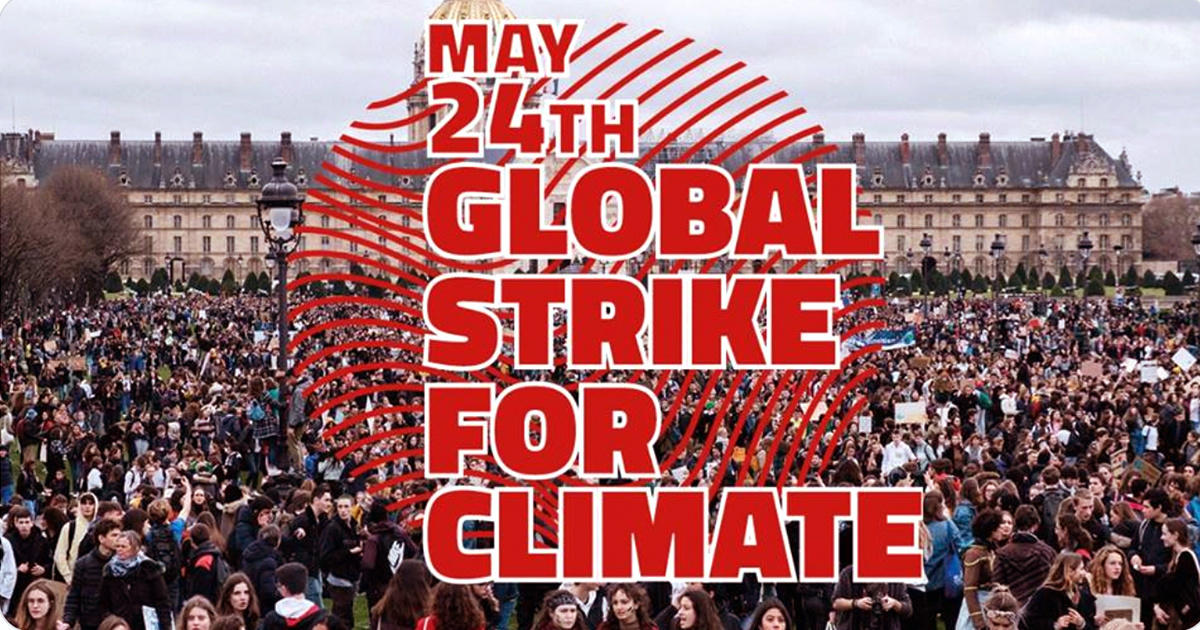
Global Climate Revolt Escalates: 1,351+ Strikes in 110 Countries Planned for Friday

People in more than 100 countries are expected to take part in well over 1,000 strikes on May 24 to demand climate action from their governments. @ExtinctionR / Twitter
By Julia Conley
Two months after what was reportedly the largest international climate demonstration ever, young people around the world are expected to make history again on Friday with a second global climate strike.
Sixteen-year-old Greta Thunberg, who began the global movement in which students around the world have walked out of their classrooms on a weekly basis since last fall to demand climate action, reported Tuesday that at least 1,351 separate strikes are now scheduled to take place all over the world on Friday.
Climate justice advocates plan to walk out of their schools and workplaces on every continent on the globe and in more than 100 countries.
Two strikes are planned in Antarctica, according to a map on the #FridaysForFuture website; countries including Afghanistan, Namibia and Uzbekistan are each planning at least one strike, while hundreds of rallies have been planned across Germany, France, the U.S. and several other countries.
On March 15, an estimated 1.6 million people demonstrated in 123 countries. The number of planned protests for Friday surpassed the 1,325 which took place two months ago.
350.org called on supporters to stand with the students leading the global call for an end to fossil fuel extraction in order to keep global warming under 1.5 degrees Celsius.
Thunberg held the first climate strike last fall, holding a one-person protest outside Swedish Parliament and demanding that her elected officials begin a shift toward renewable energy sources to help stem the warming of the globe.
Young people who have organized their own protests in recent months argue that they will still be relatively young in 2030, the year that the Intergovernmental Panel on Climate Change (IPCC) warns the climate crisis will be irreversible unless world leaders take action now to stop the carbon emissions which are rapidly warming the planet.
While government officials who refuse to act now may not have many more decades left on the planet, youth organizers argue, young people will face the consequences of that inaction.
In recent weeks, grassroots climate protests have successfully pressured some government leaders into officially recognizing the climate crisis and pledging to take action. Lawmakers in England, Ireland, Scotland and Wales officially declared a climate emergency in the wake of mass protests by the global movement Extinction Rebellion in April.
And the head of the European Commission pledged in February to spend a quarter of the EU’s budget on combating the climate crisis beginning in 2021, under pressure from Thunberg.
“Activism works. So act,” Thunberg tweeted this week, sharing a video featuring young people who plan to walk out of their schools on Friday.
Reposted with permission from our media associate Common Dreams.

 233k
233k  41k
41k  Subscribe
Subscribe 